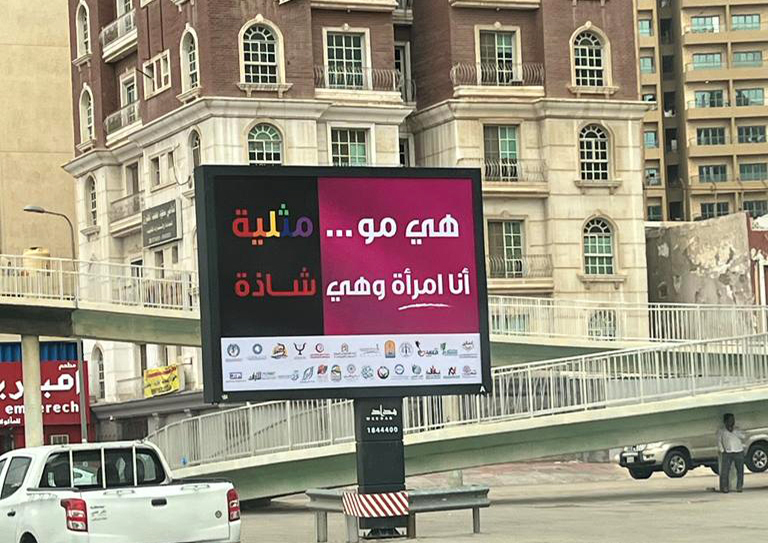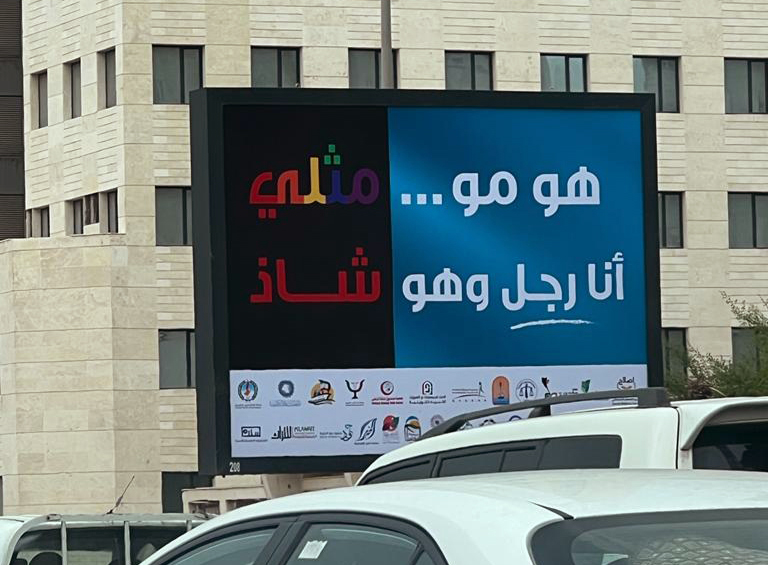Mai Al-Nakib
Against the backdrop of the World Cup in Qatar, the women’s revolution in Iran, and Saudi Arabia’s cultural and social about-face, it’s no surprise that recent developments in Kuwait are unfolding under the radar of international media attention. In the last few weeks of 2022, citizens and residents awoke to headlines that would be farcical if they weren’t so ominous.
In late November, the “Parliamentary Committee on Negative Phenomena” declared that an annual run sponsored by a local bank should be canceled because it involves the mixing of genders and features a live band. Apparently, two decades after the sports event was inaugurated, it was suddenly contrary to Islam and local customs. Committee pressure failed to persuade the Ministry of Interior to cancel the event, so it went on as planned, music and mixing intact.
In the first week of December, two billboards sponsored by 26 NGOs and associations — including the Kuwaiti Lawyers’ Association and various human rights and humanitarian associations — sprang up around Kuwait City. One of the billboards announced: “He is not like me. I am a man and he is a deviant.” In Arabic, “like me” (mithli) is a pun on the word “gay.” The other billboard stated: “She is not a lesbian. I am a woman and she is a deviant.” The pun doesn’t work in the feminine tense and the billboard hardly makes sense, so to dispel ambiguity, both the words “gay” (mithli) and “lesbian” (mithliyya) were in rainbow colors — that is, until the Ministry of Commerce and Industry ordered the sponsors to change them because pride rainbows have been banned in Kuwait since June 2022.
Also in the first week of December, a decree was issued by the Ministry of Education ordering teachers in private foreign schools to attend training sessions on Islam and Muslim Kuwaiti society. Before starting their jobs, teachers must sign a declaration attesting that they have completed their training and will not violate the country’s religious dictates, customs, or accepted behaviors. The declaration also states that they must not tackle “controversial subjects” — which remain unspecified — in their classrooms and that they can be immediately terminated for violating these conditions.
In the third week of December, five religiously conservative members of parliament demanded that Kuwait University, the Public Authority for Applied Education and Training, as well as all private schools be completely segregated based on gender within a year. They are proposing an amendment to the gender segregation law of 1996 in order to expand its implementation. Their demand contradicts a 2015 ruling by Kuwait’s Constitutional Court, which declared that, according to the law itself, the parameters of gender segregation in education are flexible and do not require the kind of narrowing the five parliamentarians are calling for.

A few explanations for this rising homophobic and sexist conservatism in Kuwait could be that it is a reaction against expanding progressive tendencies in the region and beyond; or a symptom of back-room horse-trading between parliament members and the government; or a tired effort to deflect attention away from the real issues plaguing the nation: from crises in education and healthcare to corruption and threats to economic sustainability. But one afternoon, while teaching Jean Baudrillard’s essay, “The Precession of Simulacra,” in my unsegregated literary theory class, another, slightly more optimistic reason came to mind.
Baudrillard argues that signs and images have undermined the real, such that only signs remain, directing all desires and actions. In our world of Instagram and TikTok, Baudrillard’s claim is our lived experience. But his example about religious iconoclasts got me thinking. Iconoclasts fear icons as worshipped signs of the divine not simply because they threaten to distance worshippers from the divine, but because they threaten to expose the divine itself as just another sign among many. Iconoclasts cannot tolerate this potential threat to their version of reality, so they destroy the mediating signs in order to preserve their favored one.
Yet homophobic billboards and sexist declarations are signs that our local iconoclasts are using with gusto, against the knowledge of their potential dangers. They act as if their signs represent unified, incontestable Muslim values and beliefs. In fact, their usage smacks of desperation, of a suspicion that their own signs exist equally among a precession of other signs for fast food, cars, plastic surgery, and electronics. Our neighborhood iconoclasts — and their ilk the world over — persist with heightened fervor because to do otherwise would force them to admit that their signs carry no more value than any others.
Liberal and progressive signs, tolerant and open ones, signs that are loving, kind, generous, curious, secular, and creative — these proliferate locally, globally, virtually, and in classrooms both segregated and not. No temporary billboards, flimsy declarations, or bigoted legislation can stop their spread, and the iconoclasts know it.
And they are afraid.





Excellent and well-considered, as always. I had to look up “precession.” I admire your work ethic and courage.